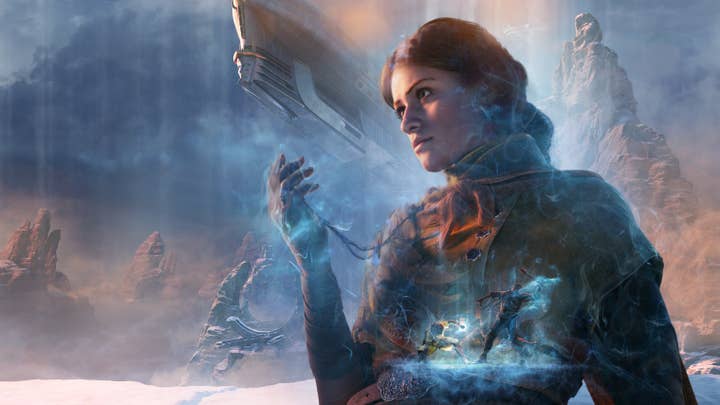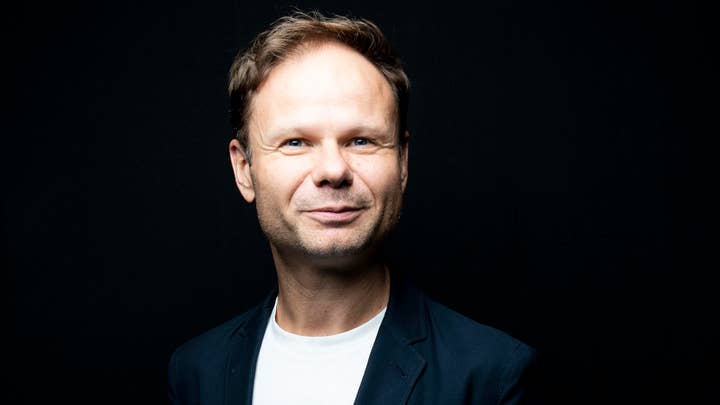Bandai Namco: Publishers face "new risks" when planning releases
European CEO Arnaud Muller discusses the balance between safe bets and taking risks in today's market
Bandai Namco is having a solid 2024, so far. The launch of Elden Ring expansion Shadow of the Erdtree in June has already helped boost profits and led the publisher to raise its forecasts for the year ahead.
GamesIndustry.biz caught up with the company's European CEO Arnaud Muller to discuss the wider challenges in the upper echelons of the publishing landscape. We've already published his comments about 2024 is likely to be a "year of stabilisation" for the industry amid widespread layoffs and consolidation, but elsewhere in the conversation he expressed confidence that 2025 will be a much stronger year for games firms.
"Launching a new IP has become more and more difficult"
But an increasingly crowded release slate for next year creates additional challenges for publishers like Bandai Namco, especially with those raised forecasts to meet. Muller believes ongoing sales of Shadow of the Erdtree and next week's launch of new IP Unknown 9 Awakening will help, but it's this week's Dragon Ball Sparking Zero he believes will be "key for [Bandai Namco] to be able to achieve [its] full-year target."
Like all publishers in these troubled times, Bandai Namco is carefully evaluating its pipeline for the years ahead. We asked Muller about the decision-making process behind this evaluation and the many external factors that affect it.
The conversation can be read below, edited for clarity and brevity.
When evaluating your games pipeline, how do you decide what to prioritise? Do you go for safe bets, or is being risk-averse actually risky in itself?
We have [frequent] editorial and portfolio discussions with our Japanese headquarters but also within our European organisations. I think we tend to look at a balanced risk approach where we're looking at the level of investment, our ability to produce some of our games versus the potential of existing IPs, and the potential for new IPs in some market segments where we believe that we can make a difference.
Are there safe bets today in the market? I believe yes, because some IPs still have traction, and some studios have the credentials to produce games that are going to appeal to a certain audience. But I think what we're seeing – and it's no different to the other publishers – is that launching a new IP has become more and more difficult. The cost of development has increased, and the time for development has increased as well, so you need to factor this new risk paradigm into your decision-making process. You need to factor in a certain level of overspending on development and the possibility of delays from day one. If not, you're in for some bad surprises.
And of course, you need to balance your portfolio between risks and innovation, and some of the bigger IPs and safer bets. It's a very hard mix because you don't necessarily control which year they are going to fall. You can very much end up with some risky bets within the same year because two of the safer bets have slipped or vice versa.

You also can't account for what other companies are being released, although we already know a lot about 2025's line-up. In addition to Grand Theft Auto 6 and (hopefully) Switch 2, there's a new Borderlands, Mafia, Death Stranding, Monster Hunter – a lot of popular games. What impact does that have on companies like Bandai Namco, which is a major publisher but not necessarily one of the biggest in the West? How does that affect your decision making?
Well, first, I'm going to ask you a question in return: how many of these games will come on time? How reliable are these games in terms of their release window? Because they are no different to everybody else.
We are lucky enough to work on titles that do not necessarily compete with those games in terms of genre and IP. Of course, we all fight for the same play time, and there's only so much people can play or afford. However, we believe that in the genres and the IPs where we make games, there is an audience that is interested in our portfolio, that is loyal to some of our IP, and that will be interested in buying our games.
"You need to factor in a certain level of overspending on development and the possibility of delays from day one. If not, you're in for some bad surprises."
And I'm not just talking about the anime or fighting genres, I'm also talking about our own IP. Little Nightmares 3 has also been announced for 2025, and that has a fanbase that hopefully will be interested in playing that game, irrespective of whether GTA comes in 2025 or not.
If you start making decisions based on when the competition is going to release as early as one year before your development, then [you'll have trouble]. It's very different for all publishers. We are lucky enough to be in that space where, for some of our games, if we make them right and the quality is there, we are confident enough that we will touch our fans and audience.
You've said 2024 will be a 'year of stabilisation' for the games industry. What do you think it will take to get the market back to significant growth?
First, we need the right macroeconomic environment. That's going to be key. We also need the right platforms, the right install base. Given the portfolio of games that you've mentioned, there are plans for 2025 – if all that materialised, then obviously, I don't see how the market wouldn't grow next year.
"Little Nightmares 3 has fans that hopefully will be interested in that game, irrespective of whether GTA comes in 2025"
So it's a combination of content, purchasing power – and new markets as well. We're seeing some markets with significant growth, on console but also on mobile. We're talking more about Brazil and South America, India, and so on.
We are also lucky enough not to be too affected by the slowdown of consumption in China, because Chinese consumers mostly buy Chinese games. Some other industries, like the car industry, are being affected more. But the video game industry is probably less affected by this.
On the need for new platforms, the industry is waiting for news of Switch 2. How will this benefit Bandai Namco? Is Nintendo a big platform for you?
We're platform agnostic. Our games are mostly available on all platforms and Switch has always been an important platform to us. It's not just Nintendo games that are selling on Switch – we have had some very strong successes on that platform. So whenever a new console comes out from Nintendo, we'll be ready to invest there. We want our players to play our games and IPs on whatever platform they have at home.

